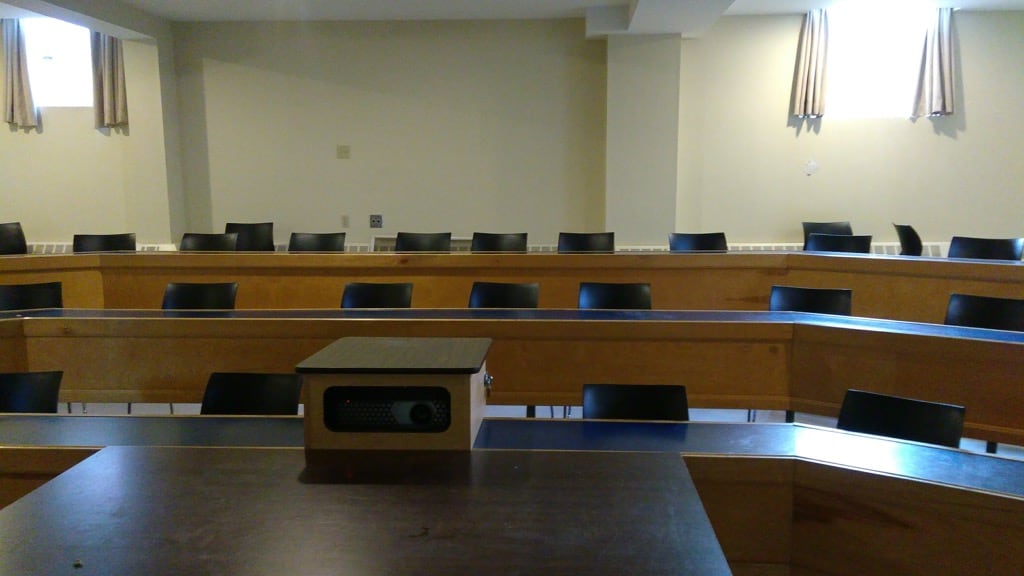I was back in the classroom at the University of PEI this week, guest-teaching two classes of Philosophy 105, Technology, Values & Science, the same course I audited in 2009 and guest-taught for two weeks in 2016.
It was a shorter stint this time than last. And of course the world has changed, and my interests have evolved. So rather than simply carting out the PowerPoint presentations from two years ago, I created two entirely new lectures from scratch. Which was exhausting. But, after the fact, extremely satisfying.
There are about a dozen students in the class, from several different disciplines. I dropped round to Main Building № 116 last Wednesday for their regularly scheduled lecture by Prof. Neb Kujundzic, introduced them to some of the terrain I planned to cover, and got a sense of their interests and Neb’s approach.
This Monday at 3:00 p.m. I was back, this time at the head of the classroom.

Monday’s topic was an exploration of the European General Data Protection Regulation (GDPR), a sweeping update to Europe’s access and privacy regulations that takes effect in May. I used my own challenges in requesting access to my own healthcare spending data as a jumping off point, reviewed the main pillars of the GDPR (consent, breach notification, right to access, right to be forgotten, data portability, privacy by design), and then had the class break itself into small groups for discussions on a website of their choice that collected personal data, where its data collection process might be problematic under the GDPR, and what concrete steps could be taken to improve compliance. Before we finished for the day, we reconvened to summarize their small group discussion: two groups had selected Instagram, one YouTube, one Google and one Facebook. The students raised interesting points, and came up with some novel access-and-privacy-increasing solutions. The slides for Monday’s lecture are here.
We reconvened on Wednesday for an exploration of the technical and cultural shift from hardware to software. Again, I used some stories from my own experience–OpenCorporations.org, for example–as a jumping off point, and then we returned to small group discussion, focusing on the implications of this transition, on who’s getting left out of this transition, and whether we could make it stop if we wanted to. The slides for Wednesday’s lecture are here.
Teaching is, at its heart, equal parts performance and listening, and I find the run up to the experience to be all-consuming: it’s all I think about for the week leading up, and I’m forever refining my thoughts and my slides. I don’t really realize exactly how all-consuming it is until it’s over and I regain the cycles that I’ve been expending full-tilt. By that all-consumption is worth it for the opportunity to discuss interesting issues with curious young minds.
If nothing else, the experience reminds me yet again how much we owe our teachers for their dedication to the craft; I’m certain it’s not a profession I could take on full-time, but I appreciate the opportunity for brief windows into it every year or two.
 I am
I am
Add new comment